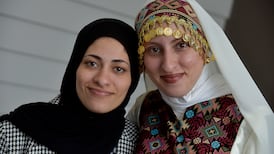Traveller Mary Stokes may have lost her legal battle against standard admissions practice in Irish schools but she has succeeded in highlighting just how the dice is loaded against children from ethnic minorities.
When she applied to the Christian Brothers High School in Clonmel in 2009 for a place for her son John, she encountered the same system of “positive discrimination” that thousands of parents grapple with each year.
Under the Education Act 1998, schools are allowed to draw up their own admissions policies, providing a variety of sometimes Byzantine procedures.
In areas of high demand, schools tend to give children of past-pupils priority and to operate a “first-come - first-served” system after that.
Migrant children
While this might seem fair on a superficial basis, it inevitably disadvantages children of migrant families who have only recently moved into an area, or Traveller children like John Stokes, whose father did not go to secondary school.
An added form of positive discrimination surrounds religious ethos. Section 7 of the Equal Status Act 2000 affirms the right of denominational schools to give priority to children of a particular religion when they are oversubscribed.
Long-promised reform is materialising in the Education (Admission to Schools) Bill, which will require admissions policies to be “inclusive” and will outlaw discrimination on racial, religious or disability grounds.
‘Soft barriers’
It also seeks to tackle “soft barriers” to admission by phasing out waiting lists, ending application charges, and limiting the number of places that can be reserved for children of past pupils.
The Department of Education says the Bill is still at drafting stage, and no decision has been made on whether schools will be allowed to reserve as much as 25 per cent of places for children of past-pupils, as proposed by former minister for education Ruairí Quinn.
The alumni of several fee-charging schools have been lobbying heavily against any such controls, arguing that their schools depend upon existing community and family support to stay afloat.
However, in a report last year on the general scheme of the Bill, the Oireachtas Joint Committee on Education and Social Protection said Mr Quinn's derogation would undermine other objectives of the legislation, and queried how the 25 per cent figure was arrived at.
While the committee believed schools should be permitted to give priority to siblings of existing pupils, it said “a school should not be permitted to give priority to a student on the grounds that he or she is the son or daughter of a former student of the school”.
View echoed
This echoed the view of the Ombudsman for Children, who said the past-pupil derogation was “unjustifiable given its impact on Travellers and immigrant children”.
The Ombudsman also recommended that Section 7 of the Equal Status Act 2000 be amended “to provide that no child should in general be given preferential access to publicly funded education on the basis of their religion” save where the school’s denominational character is threatened.
Pressure is also coming from UN human rights watchdogs and other legal bodies which have questioned whether existing policies comply with international law or constitutional protections.
Minister for Education Jan O'Sullivan has said the "equality agenda" would be the top of her list of priorities in office. The wording of the Bill will determine whether that is the case.










